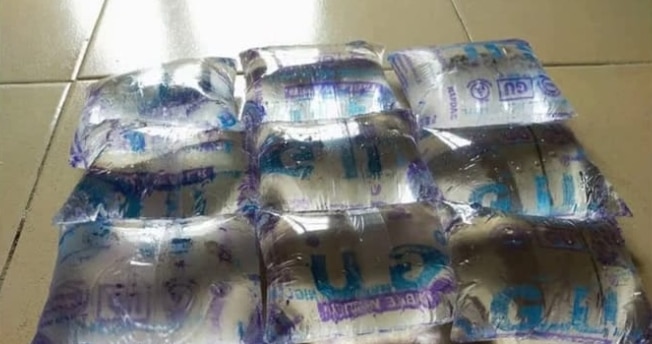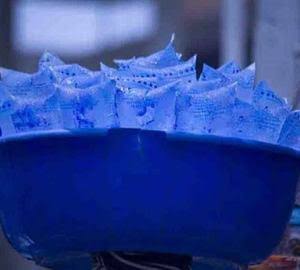Sachet water, or pure water as it is often called, is the most popular form of water available in Nigeria. It is cheap, it is very handy, and also readily available. Sachet water is sold both in the shops and on the road by hawkers.
Because the production of sachet water is fairly easy to start, there are so many sachet water companies in the country that shops in a street could be supplied by two or more sachet water companies.
Also, because public water supply is almost non-existent in Nigeria, many people rely on sachet water for drinking and even cooking.
One of the reasons why sachet water is very common is the fact that many people think it is healthy, hence the popular name “pure water”. The reason is because the sachets are always transparent, it is usually very easy to see through and this makes it seem like the water is clean, compared to water from the well or other sources. But how clean is it?
Remember, just because the water looks clean does not mean it is safe to drink as there could be a lot of germs and bacteria present in the water but undetected by the human eye. This is not to say that sachet water is unsafe to drink but it is not enough to trust it just for the fact that it looks clean. There are a lot of reasons why sachet water could be unsafe, including,
- Source of water: the source of water is something you should always consider. Some companies get their waters from well, some from boreholes, and so on. Different water sources have different purity levels.
- Company Operations: Although sachet water companies would say that their water goes through some filtration and purification process, many of them do not have the facilities or equipment for such processes and they end up doing little or nothing to make sure that their water is unsafe for drinking.
- Storage: Where the water is stored could also affect the quality. This could alter both the taste and smell, making it very unsafe for drinking.
- No expiry date: Does sachet pure water expire? Yes it does, mostly after two months. However, most sachet water companies in Nigeria don’t add an expiration date. It is not good to drink an expired sachet water. This is because, over time, plastic can begin to leach into the water, thereby contaminating it with chemicals, such as antimony and bisphenol A (BPA).

There are some health effects that come with drinking sachet water that makes some people avoid it and we would be looking at some of these effects below,
BPA
Bisphenol A or BPA is a chemical that is present in some kinds of plastic, including the type used to make the sachet for sachet water.
While BPA does not pose any threat when it is in low amounts, it could cause adverse health effects when it is present in large amounts. For example, when the sachets are exposed to the sun, it causes the BPA to become present in water.
The longer the exposure, the more BPA is present in the water. BPA has been linked to several health issues including hypertension, heart attack, coronary artery heart disease, angina, and even changes in blood pressure.

Cholera
Like we noted above, not every water that looks clean is healthy to drink. There are still some germs present and drinking it could lead to several health problems including cholera, which is caused by drinking dirty water.
Environmental Problems
Another external health effects of Sachet water in Nigeria is the environmental problems that it creates. Improper dumping of sachet water bags by the consumers after use has been one of the great environmental challenges affecting the country.
A 2019 study found out that improper sachet water disposal was the main causes of river pollution, and environmental littering in Nigeria. The study also mentioned some ways to improve environmental health in Nigeria by reducing improper sachet water disposal.
Contains Heavy Metals
A 2017 study investigated the health risk assessment of heavy metal variability in sachet water sold in South-Western Nigeria. They found the presence and concentrations of heavy metals, such as chromium (Cr), iron (Fe), manganese (Mn), copper (Cu), aluminum (Al), and zinc (Zn) in some samples of sachet water sold around Ota, Ogun State, Nigeria.
Having heavy metals in water can be bad for human health. Some heavy metals, such as lead, cadmium, and mercury, can be toxic even in small amounts and can cause various health problems, including damage to the nervous system, kidneys, and liver.



